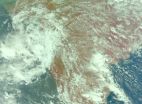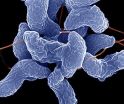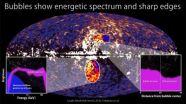(Press-News.org) CORVALLIS, Ore. – Rural and small town libraries are one of the newest forces being tapped to improve the science literacy of Americans through lifelong, "free-choice learning" opportunities in which people learn scientific, engineering and technical information somewhere other than school.
A new initiative, supported by a $2.5 million grant from the National Science Foundation, will help rural librarians tap into scientific expertise in their local communities, organize local events, provide video and other supporting materials, and essentially create adult "science clubs" across the nation.
"Most Americans gain the bulk of their knowledge about science somewhere other than school," said John Falk, a professor of science education at Oregon State University, co-principal investigator on this project and one of the nation's leaders in promoting free-choice learning initiatives.
Adult science literacy in the United States is actually high, compared to other nations and younger students.
"However, many rural areas and small communities don't have easy access to the range of museums, zoos, aquariums, high-speed Internet connections and other facilities that can make free-choice learning accessible," Falk said. "With this program we hope to identify the types of programs and topics that will be of interest to people in these areas, and give them new ways to explore those interests."
Falk and Lynn Dierking, also a professor of science education at OSU and a national leader in this movement, say it is gaining increasing interest and may provide another avenue to increased science literacy – and one that is not about children spending more hours in school.
"Average Americans spend less than 5 percent of their life in classrooms, and an ever-growing body of evidence demonstrates that most science is learned outside of school," Dierking and Falk wrote in one recent analysis. "We believe that non-school resources, used by learners across their lifetimes from childhood onward, actually account for the vast majority of American science learning."
Educational experts across the nation increasingly point to the low levels of science knowledge by graduating high school and college students, and the implications this has for technological progress, economic growth and new jobs. But most American adults have similar levels of science knowledge as their foreign counterparts, and consistently outperform adults from such places as Japan, Germany and the United Kingdom.
The real problem, the OSU researchers say, is that at the elementary, middle and high school levels, students don't always take advantage of learning opportunities outside school, which tend to reinforce and complement what they learn in traditional science courses. This is particularly the case for children from many low-income and minority families.
Various approaches are being developed to deal with this situation. OSU is a leader in an NSF-supported Center for the Advancement of Informal Science Education, and involved in other initiatives to engage children and youth of all backgrounds in free-choice science learning, such as a project supporting girls' engagement in science. Another major study is beginning soon to document how children and youth in Portland, Ore., use resources, both in and out of school, to learn about science.
In the U.S., according to Falk and Dierking, free-choice learning is how most adults learn most of what they know about science. They actually know a lot, but they don't get it from school.
"Free-choice learning can be watching a nature show on television, researching the Internet about a health issue when a family member is sick, going to a museum or just reading about a topic that interests you," Falk said. "And some of it is parents who try to be supportive with their children, taking them to places where they can learn. We're just beginning to learn what all the possibilities are."
An important aspect of these initiatives, the researchers said, is helping families who may not have a history of using free-choice learning with their children, particularly since poor and minority children are consistently the least benefited by school.
In a recent paper published in American Scientist, Falk and Dierking note that the dominant assumption of educational policy for decades has been that school is the only place where children learn. This assumption is wrong, they said, and a heavier emphasis on school may not address lingering educational concerns. The OSU researchers argue that rather than increasing school time, as a nation we should invest in expanding the quality of out-of-school experiences for all children.
It is critical that learning about science in these contexts be interesting, fun and engaging, they said. It can't be approached as if it's just one more class.
"If out-of-school programs are merely devices to extend the school day with more hours of the same pedagogical experiences, they are unlikely to be successful, particularly in the long term," the OSU researchers wrote. "In fact, it's more likely that they will do more harm than good, by reinforcing stereotypes of science and science professionals as dry, boring and school-like."
###
END
Montreal November 9, 2010 – Potential investors might wish to examine the fingers of their financial advisor prior to signing over any savings. A new study from Concordia University has found the length between the second and fourth finger is an indicator of high levels of prenatal testosterone, risk-taking and potential financial success in men. The findings, published in the journal of Personality and Individual Differences, suggest that alpha males may take greater risks in relationships, on the squash court and in the financial market.
"Previous studies have linked ...
Infrared and visible imagery from NASA's Aqua satellite today hinted that the low pressure area formerly known as Cyclone Jal may have new life soon. Jal has emerged into the warm waters of the Arabian Sea after crossing India this past weekend.
The Atmospheric Infrared Sounder (AIRS) instrument that flies onboard Aqua captured infrared and visible images of Jal's remnants on Nov. 9 at 1:30 p.m. local time/India.
Today's AIRS imagery hints that circulation is still occurring in Jal's remnants. The circulation was particularly apparent in the AIRS visible image. The ...
The amount of time parents spend talking about numbers has a much bigger impact on how young children learn mathematics than was previously known, researchers at the University of Chicago have found.
For example, children whose parents talked more about numbers were much more likely to understand the cardinal number principle--which states that the size of a set of objects is determined by the last number reached when counting the set (e.g., a set of 10 items is larger than a set of seven items).
"By the time children enter preschool, there are marked individual differences ...
COLUMBIA, Mo. – Depression affects approximately 30 to 40 percent of nursing home residents, but it often goes unrecognized, according to American Geriatrics Society, which can lead to lower quality of life or even suicide. Now, researchers at the University of Missouri have found a series of indicators, other than changes in mood that are associated with the development of depression in nursing home residents.
"Prompt diagnosis and treatment of depression is essential to improve the quality of life for nursing home residents," said Lorraine Phillips, assistant professor ...
AURORA, Colo. (Nov. 9, 2010) – As dog bites become an increasingly major public health concern, a new study shows that unsupervised children are most at risk for bites, that the culprits are usually family pets and if they bite once, they will bite again with the second attack often more brutal than the first.
The study, the largest of its kind, was done by Vikram Durairaj, MD, of the University of Colorado School of Medicine, who found that dogs usually target a child's face and eyes and most often it's a breed considered `good' with children, like a Labrador retriever.
"People ...
Killing microorganisms has become a national obsession. A pair of antimicrobial compounds known as triclosan and triclocarban are lately the weapons of choice in our war of attrition against the microbial world. Both chemicals are found in an array of personal care products like antimicrobial soaps, and triclosan also is formulated into everyday items ranging from plastics and toys to articles of clothing.
But are these antimicrobial chemicals, as commonly used by people across the nation, really safe for human health and the environment? More pointedly, do they even ...
Between 20 and 30 percent of women who undergo in vitro fertilization (IVF) procedures suffer from significant symptoms of depression. Many practitioners believe that the hormone therapy involved in IVF procedures is primarily responsible for this. But new research from Tel Aviv University shows that, while this is true, other factors are even more influential.
According to Dr. Miki Bloch of Tel Aviv University's Sackler Faculty of Medicine and the Sourasky Medical Center in Tel Aviv, stress, pre-existing depression, and anxiety are more likely than hormone therapy ...
U.S. Department of Agriculture (USDA) scientists in West Virginia are finding ways to improve soil on degraded land so it can be used for sports fields and other uses.
Researchers with USDA's Agricultural Research Service (ARS) at the agency's Appalachian Farming Systems Research Center (AFSRC) in Beaver, W.Va., are developing constructed or replacement subsoils and topsoils to build better and less-costly sports fields, raingardens and lawns on former landfills, mine lands and other degraded land. ARS is USDA's principal intramural scientific research agency.
The constructed ...
ANN ARBOR, Mich.---Some scholars estimate that presenteeism, a relatively recent buzzword that applies to people who are less productive at work because of health issues, costs employers as much as three times the dollar amount as absenteeism in terms of lost productivity.
But researchers at University of Michigan believe those numbers may be inaccurate. A new opinion paper suggests that the tools for measuring and quantifying hours of lost productivity and translating those hours to dollars are unreliable and don't capture the entire presenteeism picture, said Susan ...
WASHINGTON -- NASA's Fermi Gamma-ray Space Telescope has unveiled a previously unseen structure centered in the Milky Way. The feature spans 50,000 light-years and may be the remnant of an eruption from a supersized black hole at the center of our galaxy.
"What we see are two gamma-ray-emitting bubbles that extend 25,000 light-years north and south of the galactic center," said Doug Finkbeiner, an astronomer at the Harvard-Smithsonian Center for Astrophysics in Cambridge, Mass., who first recognized the feature. "We don't fully understand their nature or origin."
The ...



